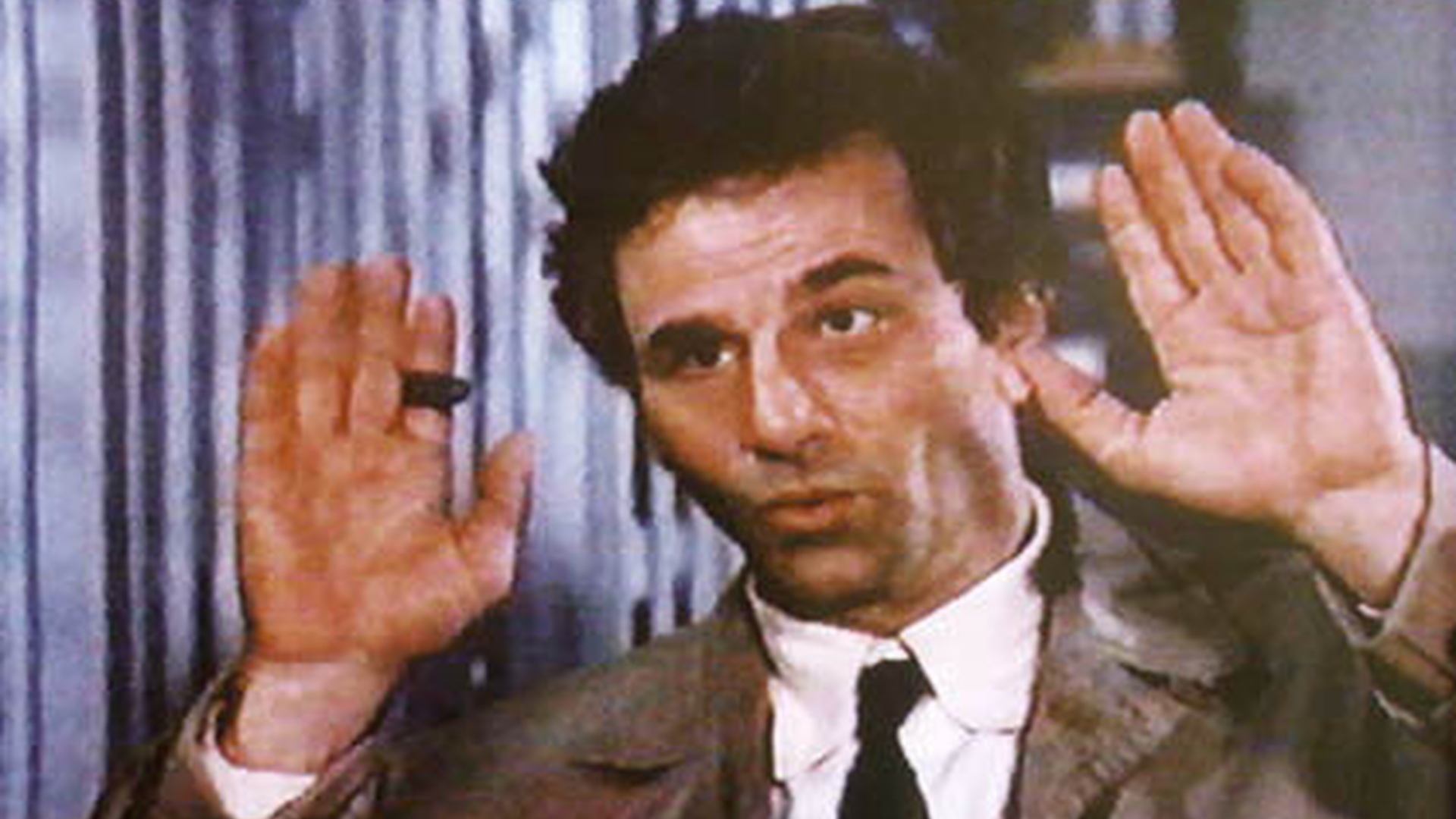After the election result I couldn’t help being reminded of the classic TV show Columbo. It played out a little like that.
After the election result I couldn’t help being reminded of the classic TV show Columbo. It played out a little like that. Underestimated due to his ruffled demeanour the lead character catches-out his arrogant adversary, unstitched by their sense of superiority. Despite being a fan of Columbo, for me, like many others, this election result came as something of a surprise. This result simply seemed beyond the edges of possibility – that was before the exit poll changed things.
In anticipation of the results I’d reread Walter Benjamin’s 1931 essay ‘Left-Wing Melancholy’ – where he takes a swipe at a detached and distant intellectual milieu. Printed and stapled on my desk, ready for reading on Friday morning, was a copy of Wendy Brown’s 1999 article ‘Resisting left melancholy’ I was thinking I might need some resources for thinking about potential political futures, post-liberal times and the closing down of viable alternatives. The election delivered a rather different lesson, a lesson about the problems of political certainty.
If we take the closing predictions of the polls they make for startling reading. Far from offering any kind of certainty they actually revealed just how uncertain things were. The eight key polling companies predicted a lead for the Conservatives ranging from 1-13% - with Survation on 1% and BMG on 13%. Of course, in the current political system, overall vote share means little anyway – other than giving a sense of the overall direction of views. The apparent obsession with the polls, especially on social media, is perhaps really a symptom of something else. People’s lack of a sense of certainty about the future means that they turn to the polls for a fleeting snapshot of solidity. It makes sense. As the sands shift we want to try to work out where we stand. The result of either a faith in the numbers or a faith in the political orthodoxy means that many commentators and politicians are now having to backtrack with some haste. Hegemony is cracking under the pressure – as shown by the recent discussions of the apparent inability of the right wing press to dictate the terms of the election – shafts of light are shining through.
In the aftermath of the election, as I write this piece, the future looks quite different to the one we might have pictured only a few days ago. The bookends of possibility have been forced outwards. Concerns, rightly, were of the emergence of an unchecked one party state. Right now, as the government stitches together a fragile looking support agreement, the political situation could hardly look less certain.
The Guardian columnist Aditya Chakraborty suggested after the election that we are moving into a new age of authenticity – fuelled by a kind of anti-technocratic sentiment. This seems like a particularly telling account of what is going on. We seem to also be moving into a period of unpredictability. The circumstances of this unpredictability are wide-ranging. There are a number of cross-cutting currents that are hard to diagnose or tie down in any simple summary. In fact, I think the problems come when we try to reduce these shifts into something that can be readily packaged or where we are too fixed in our analysis of these trends or the outcomes that we predict. Understanding is crucial but theories that overlook the variegated and uneven nature of the issues are likely to stumble. It’s crucial to try to capture the mood, to conceptualise social problems, to identify driving forces and to locate the movements of power, but the mistake is to approach these with anything close to certainty in their purity and accuracy. This is particularly pointed when it comes to trying to predict the future. Visions of the future can provoke action but they can also limit the range of possibilities, so they need to be handled with care.
This might seem bleak, but in this case unpredictability and uncertainty are unleashing new horizons of possibility. Imaginations are being unblocked. The unforeseeable opens up the imagination and provides the space for alternatives to be cultivated. The general election may have produced an unclear outcome and an uncertain future, but it has also brought a renewed sense of possibility. In the fog of uncertainty that this election has spluttered, one thing has become very clear. We don’t seem to know people or society quite as well as we thought we did. There are benefits to this realisation. It means that we are able to use this moment to dream up possible futures that stretch far beyond those that we could conceivably have harboured only last week. These imagined futures are now unhampered by the limits of orthodoxy or a narrow sense of possibility. I’d suggest that we turn to eclectic resources to inspire and provoke those imagined futures. Informed by those resources we should not be too dogmatic about our ideas or too fixed in our visions of where we are heading. Certainty may be best avoided, for the moment at least. Accepting the unpredictability of things leaves us with far more space to think. As Colombo would remind us, asking one more question is always a good idea.
